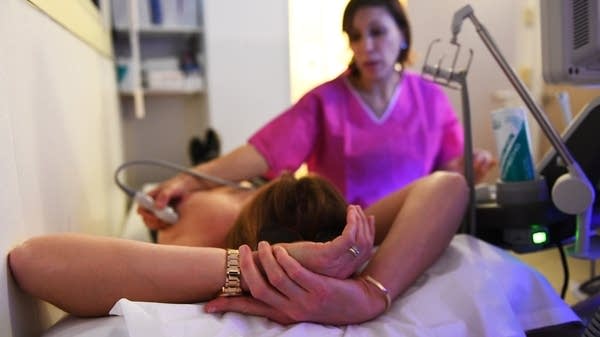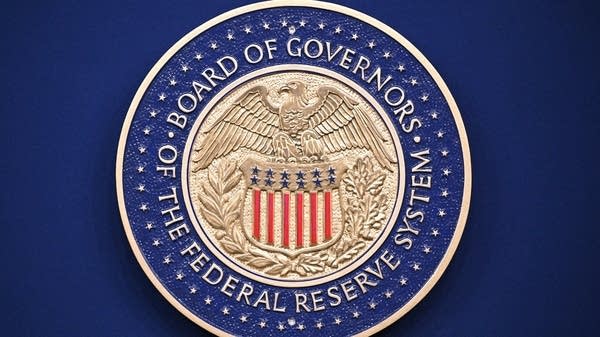Half of all women need more than a mammogram to detect breast cancer. Insurers won't always pay for it.
More than two dozen states now have laws requiring health insurance plans to cover the tests. Now, Congress may get involved, too.

If doctors can catch breast cancer early enough, the chances of survival are about 90%.
In order to catch it early enough, women over the age of 40 usually get annual mammograms — paid for by their health insurance.
For roughly half of those women, however, mammograms have a hard time detecting cancer — they have dense breast tissue that requires additional screening. Those screenings aren’t always covered by insurance.
Most women find out they have dense breast tissue when they get their mammogram results letter. New Yorker Micaela Birmingham found out a couple of years ago.
“The letter did explain that it’s common, and you just have to follow the proper recommended checkups to make sure that nothing is missed,” she said.
Mammograms can miss signs of cancer in dense breasts; the tissue shows up as white, as do any tumors. Birmingham follows up with ultrasounds, which are more accurate, and said she’s lucky her insurance pays for that additional screening. Not everyone is that lucky, though.
“Definitely, people fall through the cracks,” said Dr. Julie Gershon, a Connecticut radiologist in private practice. “The screening ultrasound should be considered a medical necessity for screening for breast cancer.”
But not all insurers agree, Gershon said. She frequently has to get into a back-and-forth with insurance companies about getting those ultrasounds paid for.
“We just did invoices last week, and already I have two patients calling me about why their screening ultrasounds weren't paid for,” she said.
Those tests can cost patients more than $300 out of pocket. And if an ultrasound doesn’t paint a clear picture, they could be on the hook for about $1,000 for an MRI.
Rhode Island resident Jennie Heztel Silbert said she fought her insurance company over the cost of her ultrasounds every year for three years.
“I would file my appeals. It was months and months of getting intimidating letters and bills,” she said. “And it was in the fourth year that I was actually diagnosed with cancer.”
Silbert testified before the Rhode Island state legislature in 2023 on behalf of a bill aimed at forcing insurers to pay for follow-up screening. It passed, making Rhode Island one of 35 states with similar laws. Now, the issue has become a conversation in Washington. Several bipartisan bills aim to help patients pay for screenings.
“There is reform,” said Jessica Baladad, the founder of an organization called Feel for Your Life and a breast cancer survivor. “Congress is coming together. You don't often hear about them working together, but there are some issues that they agree on.”
Until Congress acts, Baladad’s advice to people facing high out-of-pocket costs for screening is to find out what their state requires insurance companies to pay for and to stay informed on their rights as a patient.













